In today’s healthcare landscape, many critical players ensure patient well-being. Among these, one stands out for its accessibility and expertise: your local pharmacist. Surprisingly, about 90% of Americans live within a mere 5-mile radius of a pharmacy. Beyond dispensing medications, pharmacists offer valuable services like Medication Therapy Management (MTM), a crucial component often underestimated. This article, inspired by insights from the 2023 KS&R Pharmacy Survey, delves deeper into MTM’s significance and the evolving role of pharmacists.
The Significance of Medication Therapy Management
The primary goal of Medication Therapy Management (MTM) is to optimize medication therapy to enhance clinical, economic, and humanistic outcomes for patients. This collaborative effort involves patients, physicians, and various healthcare providers. MTM services are predominantly provided by pharmacists and can be administered through various channels, including phone, video, or face-to-face consultations.
During MTM, pharmacists conduct comprehensive reviews of a patient’s medication regimen, which includes prescription medications, over-the-counter products, and herbal supplements. The aim is to pinpoint and rectify any medication-related problems, ranging from incorrect usage and medication duplication to unnecessary prescriptions or untreated conditions requiring attention.
“MTM helps to increase adherence by decreasing the number of medications people are on. More likely to take 5 meds over 15 different ones. Patients are also then able to know what meds they are on and what they are for.” – Pharmacist, 2023 KS&R Pharmacy Survey
Untapped Potential in MTM
While pharmacists widely recognize the value of MTM, its recognition and reimbursement vary among states. Each state has its own Board of Pharmacy, which governs the scope of practice for pharmacists and staff within its jurisdiction. Changes to MTM reimbursement must pass through each state board and Medicare Part D insurers.
Progressive legislation is currently underway to formally recognize pharmacists as Healthcare Providers (HCPs) to ensure fair compensation for MTM services. This legislative endeavor not only seeks to rectify the issue of underappreciation but also strives to provide equitable access to pharmacist services, especially for underserved populations.
One example of this legislation is the “Equitable Community Access to Pharmacist Services Act – H.R. 7213,” which seeks to grant pharmacists the authority to provide essential services related to COVID-19 and other illnesses, including testing, treatment, and vaccinations. These services are especially vital for marginalized rural and urban populations.
Challenges and Considerations
Although pharmacists grasp the significance of MTM, constraints on their time often hinder its full implementation. Time limitations create inconsistencies in MTM service availability, particularly for those who need it most. Some pharmacists continue to provide MTM-like services even without reimbursement, considering it a fundamental aspect of their healthcare provider role.
“Conversations between health care and customers should never be billed. This is a human service, an act of genuine attention.” – Pharmacist, 2023 KS&R Pharmacy Survey
The issue may not merely revolve around reimbursement but rather the scarcity of time pharmacists can dedicate to MTM. Corporate management, often motivated by profitability, may prioritize other profit-generating activities, such as immunizations, over MTM. Immunizations are a strong growth area for pharmacies, generating higher profits over traditional prescription medicines.
“It [MTM] helps our patients be more compliant. They also like that we are looking out for them and would rather talk to us than someone they don’t know from an insurance company. They trust us.” – Pharmacist, 2023 KS&R Pharmacy Survey
Pharmacies and pharmacists play a vital role in providing accessible healthcare services, and MTM is a crucial aspect of their services. While hurdles persist, legislative strides and increasing recognition of pharmacists as HCPs are paving the way for improved compensation and broader MTM service accessibility. It’s imperative to sustain support for these initiatives to guarantee that patients receive the comprehensive and personalized care they deserve from their local pharmacies.


